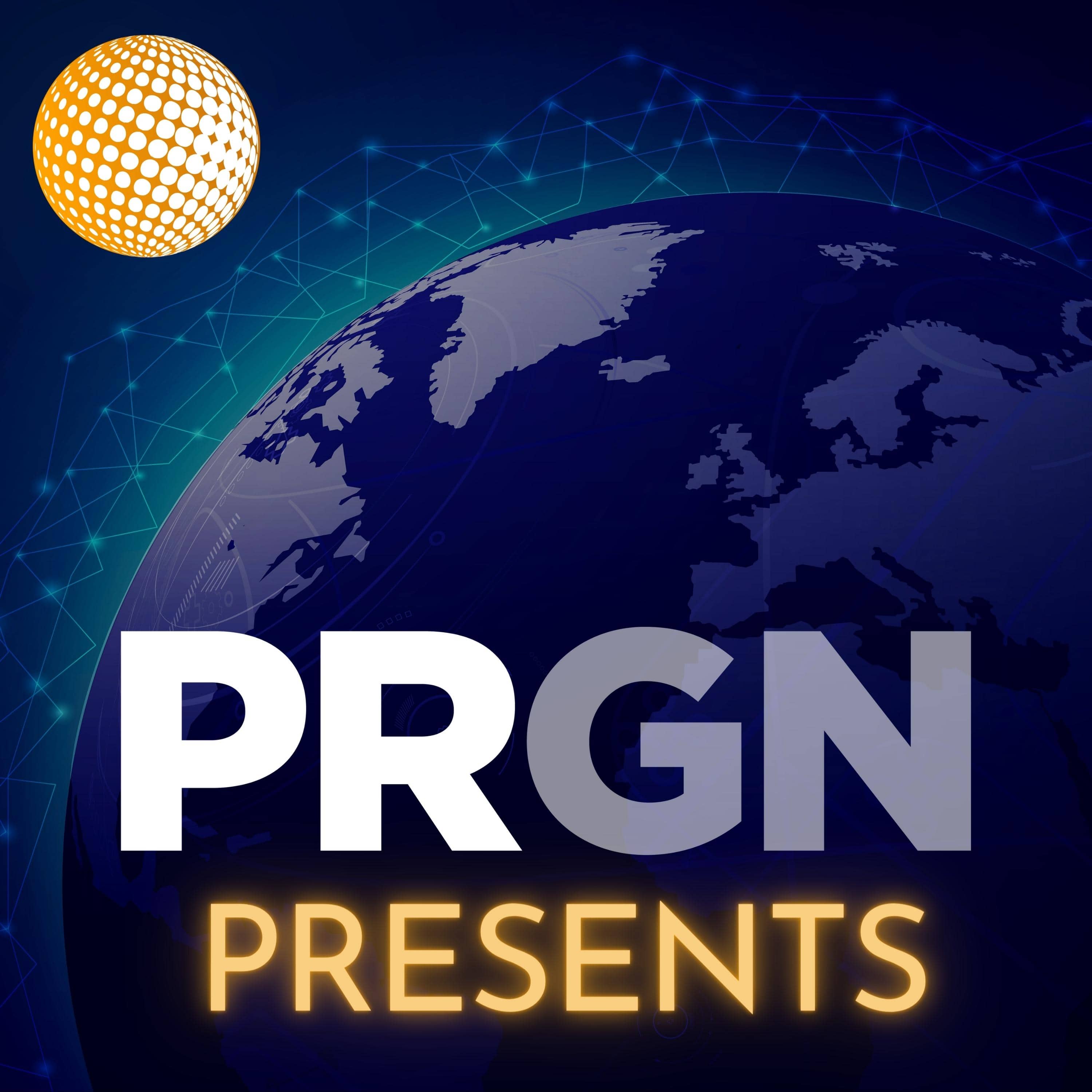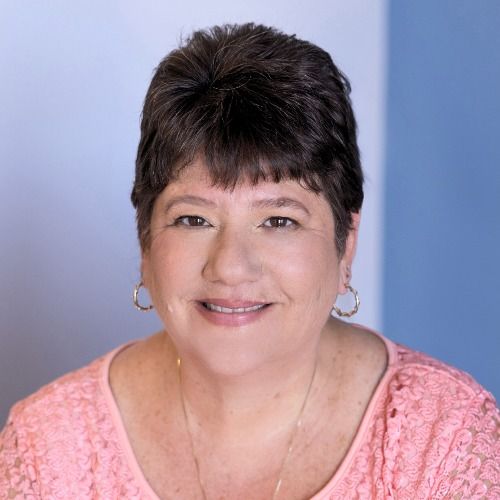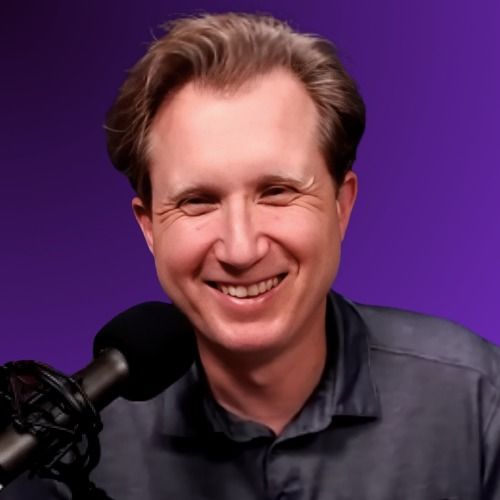S1 E5: Pros and Cons of an In-House Creative Department with Aaron Blank
Successfully business owners regularly embrace change and are constantly reviewing their business offerings against the prevailing winds of change. Don’t get stuck selling a service or a way of doing things that is inherently obsolete. What can you do differently? What should you do differently?
About the Guest
Aaron Blank is president and CEO of Fearey, a nationally recognized, Seattle-based full-service communications and marketing agency that was founded in 1981. Clients include Seattle Kraken (NHL), Amazon, Rite Aid/Bartell Drugs, Genie, JLL, Providence, Allen Institute for Brain Science, and others. He was named by PR Week (2020) and the Puget Sound Business Journal (2015) as a ‘40 under 40’ recipient.
About the Host
Abbie Fink is vice president/general manager of HMA Public Relations in Phoenix, Arizona and a founding member of PRGN. Her marketing communications background includes skills in media relations, digital communications, social media strategies, special event management, crisis communications, community relations, issues management, and marketing promotions for both the private and public sectors, including such industries as healthcare, financial services, professional services, government affairs and tribal affairs, as well as not-for-profit organizations.
PRGN Presents is brought to you by Public Relations Global Network, the world’s local public relations agency. Our co-host and executive producer is Adrian McIntyre with Speed of Story, a B2B communications firm in Phoenix.
Follow the Podcast
If you enjoyed this episode, please follow PRGN Presents in Apple Podcasts, Spotify, Google Podcasts, or any other podcast app. We publish new episodes every other Thursday. To have them delivered automatically and free of charge, just choose your preferred podcast player from this list, open the app, and click the button to “Follow” or “Subscribe” to the show: https://prgnpodcast.com/listen
Need to hire a PR firm?
Leading a business effectively in today's fast-paced world requires expert guidance and a strong communications strategy. No matter where you do business, PRGN has a member agency in your region with the deep industry expertise, international experience, and local market knowledge you need to connect with your target audience and achieve your goals. Find a PR firm near you »
Transcript
Welcome to the Public Relations Global Network's 30th anniversary podcast. I'm Adrian McIntyre ...
Abbie Fink:And I'm Abbie Fink, vice president/general manager of HMA Public Relations in Phoenix, Arizona and a founding member of PRGN. With public relations leaders embedded into the fabric of the communities we service, clients hire our agencies for the local knowledge, expertise, and connections in market spanning six continents across the world.
Adrian McIntyre:Our guests on this "limited edition" podcast series are all members of the Public Relations Global Network. They'll discuss such topics as workplace culture, creative compensation and succession planning, the importance of sustainability and Environmental, Social, and Governance programs, crisis communications, and outside-of-the-box thinking for growing your business.
Abbie Fink:For more information about PRGN and our members, please visit prgn.com. And now, let's meet our guest for this episode.
Aaron Blank:Hey, I'm Aaron Blank, President and CEO of Fearey in Seattle, home to Amazon, Microsoft, beautiful mountains, and water.
Abbie Fink:So Aaron, I think the pandemic has given all of us business owners an opportunity to look at our businesses, evaluate, make some decisions on what it looks like what it could look like. And you've been real strategic with some of that and I'd like to talk a little bit about how you've structured and made some of these decisions, what you are doing to strategically grow the company and think of it in different terms than maybe what was physically there before and what you're doing now.
Aaron Blank:Yeah. Fast, quick and nimble is my M.O. in doing a lot of this stuff. And I'd say one of the biggest things at the start of the pandemic was looking at some of the things we might have outsourced or created functions and looked at ways of either expanding the services we offer and bringing experts on our team to just tearing down walls and become all virtual. The pandemic has shaped all of our different companies out there and most certainly we've evolved through it all.
Abbie Fink:How did you kind of put pen to paper and make some of these decisions? I mean, you can be fast and nimble, but there's still process and the pros and the cons and the costs, and how do you do it? And then how do you adjust it to what the current structure is to grow or expand particular areas?
Aaron Blank:Well, looking at the numbers, I mean, we, as a company, we're a 30-person PR shop in Seattle and for years have been outsourcing a creative function. And I saw the numbers of what we could potentially bring in by advancing a creative shop inside a PR agency and then figuring out how to intertwine PR and creative in ways that maybe we've not seen yet. So we're innovating for the future through doing it all, but also looking at the specific numbers. But also one of the key things was it's all about relationships in the end. I mean, we're in the business of PR, right? It's all about public relationships. For many years it was 10 years of us outsourcing the creative function to a specific person and people. And through the pandemic, I finally landed on someone that I thought could be the key to our creative division and that person is now our VP of Creative. And underneath her over the last year and a half, we've added designers, digital, and others to help expand and build upon the PR stuff that we can do. Whether it's creative ideas and PR campaigns to social "edible" content that people actually want to acquire. And so the creative team works with our PR function to come up with these things and expand on it. We're still in the early stages of it, but you can see ... I mean, it's a six-person team that continues to expand based on the interest from companies out there that want social, edible, organic content that feeds into PR. And then the PR part is the icing on the cake, is how we are approaching it.
Abbie Fink:How did the shift in bringing that in house impact the culture of your company? PR purists now are expanding, thinking differently, thinking creatively, what was kind of the discussions with the existing team and incorporating in this new type of creative service?
Aaron Blank:It's an ongoing conversation. I mean, you're hitting the nail on the head on it. We have these conversations about culture and intertwining creatives and marketing folks with PR people and figuring out how to blend the two. It takes a leader. And on our team, it took me 10 years to find that one leader that could run that group, and then we kept on and continuing to build around her and the team that we have. And so I'd say we probably made a hire every couple months and added to that team, but what they've brought is a new sense of creative energy, humor, fun in ways that the PR team has never seen before. And so as we've gone virtual, our company 41 years in Seattle, we've had the office, right? Now we don't have an office, so I have people in 10 states that we're creating culture through everything from a Slack Trader Joe's channel that our creative team put there, like the "Best of Trader Joe's," to a thing ... like just fun, inspiration stuff that we've put together. One of our designers put a channel called Home Plant Hoe Down or something, about what type of home plants you have, and so people post the plants that are in their house, right? There's just creative Slack that a PR team ... my PR team probably wouldn't have thought to create more fun in the agency. So culturally, they've been a blessing to inspire this virtual culture. And they're creative, so they push us to think differently.
Abbie Fink:Well, one of the things I hear in that is, all of this still comes back to the importance of communication, right? So we, in a way, are practicing what we preach to our clients all the time, which is our internal audiences are equally as important as those external audiences. And so this new sense of energy has created an internal dialogue that wouldn't have existed, may not have been missing, but certainly hadn't existed before. I think the things that the pandemic has forced all of us to do is rethink what we were doing and evaluating it against a different lens. There were things that worked that we kept, and there were things that may not have worked so great that we would never have changed but we didn't need to, and now we are. And this is one of those things where we can look for opportunities to advise our clients, advise ourselves on how we can be different about what we're doing and bring in the different kinds of resources that we have. And there's good and bad on all sides of that. But it's a forward thinking conversation that you have with your teams that really makes this stuff work.
Aaron Blank:Yeah. I think in the creative function too there's pros and cons of it. I mean, the pros are you have a staff to do it. They can be in meetings and listen and be intertwined into it. You can grow the business in a focused new approach, you can build portfolio of work. You get to focus, if you're an agency, on your own marketing. You've got a team of people that are focused on your design and look. And so ever since I brought in creative, our look on the internet is way different than it was two years ago, because we've got a concerted focused attention to it, run by experts that are on your team. The cons are, you have to get the work to sustain it, right? You need to know how much is allocated. And I think that's the risk and fear of any business owner or leader, do I have enough work? What I've seen is you bring them in just like in a PR side, the business will come. There's enough marketing needs and work out there that's not the fear, it's more about how do you intertwine it and slowly build the headcount to oversee and it takes time to build it. I think the pros and cons of outsourcing the function, the pros are its flexibility in people and hours and budget. You don't necessarily have the full-time headcount, right? You've got different folks that can do it. You've got the experts in different functions, in our agency we've got it's full service. So you don't need to have multiple types of agencies on the phone. You could go to one place and whether it's a white labeled or not, you can figure through that. There's no overhead, you could bring people in when needed. The cons are white labeling, if you're an agency, is a challenge. I did it for 10 years. I had someone and a team of people that were white labeled. And if you looked on LinkedIn as a client it's not as easy as once you know exactly who those people are and their freelancers to you. And so you can't really hide... White labeling is much far tougher today than it's ever been because of sort of the internet and the connection. So, as a agency you put risk out there if you go that way and continue to do it. I mean, for me, it was all about relationship, that's the reason why I was able to bring someone in. Looking for someone to go do it and build it.
Adrian McIntyre:Aaron, it sounds like there was something intangible that began to happen, maybe still, in the process of building in terms of the benefit to the firm of having the creative team in-house, the continuity of input and the feedback loops that are just there when someone is on staff instead of on a project. What surprised you the most or what has been some of those unexpected delights that have come out of this?
Aaron Blank:Yeah, I think of the accounts that we have, the clients that have come to us or any agency that has sort of full-service capabilities is it's the one stop shop approach and a true function in a way that the client, the business doesn't need to call ... It's sort of like what PRGN is. You got one agency that can lead 10 different markets and you don't have to deal with the 10 different market leads on it. That agency lead could potentially become the PRGN person. Like what, Abbie, you and us did with that one client in Arizona and six markets around the US. So it's the same thing with the function, the client, the business doesn't have to have a call with ad agency, the marketing agency, the PR agency, the freelancer that's doing copy or the website. We've got the experts in-house that can do that to support the function outside. So I think the surprise for me was how seamless, the work, the appearance ... how good the work is based on the type of talent we've brought in, the experts that lead it. I mean, before, PR people, "We can do it all." We can. That's what we say. "We can." But when you have the functions, as you bring these folks in, it expands the horizon and the opportunity of what you could do. So I'm proud of the work that I've seen for clients that are full-service. I'm proud of the work in general, but on a full-service account, when there's budget to have that type of team, it's efficient for the client, for the company. They have less meetings to attend to. You've got the full-service team on a client call, so when you're talking advertising or creative, they're on the call, they get dismissed when they don't need to be on there. The PR team's on there, the social part of it. So it's been a fun, intertwined ... I think, agencies in general, as we go towards the future, I mean, this is the future of the agency model. And marketing agencies have been doing it, PR agencies are doing it. It's those that sort of excel build experts and do it because businesses require it now. They expect us to know how to do all these things, even though you might not know how to. They expect it. It's a demand today that you have to get into.
Abbie Fink:Well, and I think that's it. The clients that we are serving, their expectations have changed as well, and adjusting and adapting to those changes, wherever they may take us, is how we will continue to be successful in what we do. And you're correct when you say, as PR professionals we are going to say, "Yes." We will figure it out, and we do, and we do it well. This is a way to figure it out differently. I think you can see, if we look ahead, the demand on our time and the services that we're offering will continue to evolve. The expectations of what we provide to our clients will continue to evolve. And so there's likelihood that there will be other things like this that can be brought into and under our umbrella. With the pros and the cons and the budget line items and all of the business decision part of it, does it make sense to do it and when does it make sense. We will be doing it and it's just a matter of time and to what extent we're bringing all of that in.
Aaron Blank:We've lost 60% of media in the newsrooms over the last 10 years. So as PR professionals, we have to adapt, change, build. What better place to think about authentic content in an edible way than to have a PR firm have the full-service capabilities. We approach everything from a PR-first mindset, which is authenticity and if we then bring in the paid to support it. But that's how we approach the model and in doing it. And I'd say, hey, by the way, we're in a recession now. I'll be the first to say it. Look at the numbers of small business, around 70% have seen a decline as of this month, middle of 2022. 60 to 70% of small businesses have seen a decline in the first quarter of 2022. And so that plus inflation at all-time highs, 40% or more, stock market, Bitcoin dropping dramatically. There is so much more pressure on us. And so the opportunity to think and innovate during this time with the pressure of clients and businesses is that much more important than ever before.
Adrian McIntyre:Thanks for listening to this episode of the Public Relations Global Network's 30th anniversary "limited edition" podcast series.
Abbie Fink:You can find all the episodes now in your favorite podcast app. Episodes are also available on our website – along with more information about PRGN and our members – at prgn.com.





